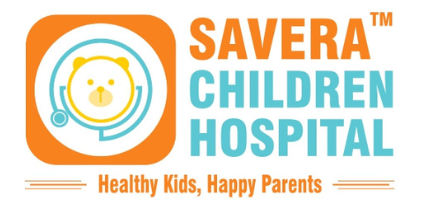As parents, one of the top priorities is ensuring the health and well-being of our children. However, childhood illnesses are often an inevitable part of growing up. While most of these illnesses are mild and can be managed at home, understanding them and knowing how to prevent them can make a significant difference in your child’s overall health. This article delves into some of the most common childhood illnesses and offers practical tips on how to prevent them.
1. The Common Cold
The common cold is arguably the most frequent illness children experience. Caused by various viruses, it is particularly prevalent in the colder months. Symptoms include a runny or stuffy nose, sore throat, coughing, and sometimes a mild fever. While it usually isn’t serious, it can be quite uncomfortable for your child.
Prevention Tips:
- Hand Hygiene: Teach your child to wash their hands frequently, especially after blowing their nose, using the bathroom, or playing outside.
- Avoid Close Contact: Keep your child away from people who are sick, and encourage them not to share cups, utensils, or toys with others who might be ill.
- Boost Immunity: Ensure your child eats a balanced diet rich in fruits and vegetables, gets enough sleep, and stays active to strengthen their immune system.
2. Ear Infections
Ear infections are common in young children, often following a cold or respiratory infection. They occur when fluid builds up in the middle ear, causing pain, fever, and sometimes difficulty hearing. While ear infections often resolve on their own, they can be painful and may require a visit to the doctor.
Prevention Tips:
- Breastfeeding: If possible, breastfeed your baby for at least the first six months. Breast milk contains antibodies that can help protect against ear infections.
- Avoid Smoke Exposure: Keep your child away from secondhand smoke, as it can increase the risk of ear infections.
- Proper Feeding Position: When bottle-feeding, hold your baby in an upright position to prevent fluid from entering the middle ear.
3. Chickenpox
Chickenpox is a highly contagious disease caused by the varicella-zoster virus. It is characterized by an itchy rash that turns into fluid-filled blisters, along with fever and fatigue. While chickenpox is generally mild in children, it can lead to complications, especially in infants or those with weakened immune systems.
Prevention Tips:
- Vaccination: The most effective way to prevent chickenpox is by ensuring your child receives the varicella vaccine, typically given in two doses.
- Avoid Exposure: Keep your child away from individuals who have chickenpox until they are no longer contagious.
- Hygiene Practices: Encourage your child not to scratch the blisters to prevent secondary infections.
4. Hand, Foot, and Mouth Disease (HFMD)
HFMD is a viral illness that primarily affects young children. It is characterized by fever, sores in the mouth, and a rash on the hands and feet. While HFMD is usually mild, it can be uncomfortable for your child.
Prevention Tips:
- Frequent Hand Washing: Teach your child to wash their hands regularly, especially after using the toilet and before eating.
- Sanitize Toys and Surfaces: Regularly clean and disinfect toys, doorknobs, and other frequently touched surfaces to reduce the spread of the virus.
- Avoid Close Contact: Keep your child home from daycare or school until they are fully recovered to prevent spreading the illness to others.
5. Gastroenteritis (Stomach Flu)
Gastroenteritis, commonly known as the stomach flu, is an inflammation of the stomach and intestines. It is usually caused by a viral infection and leads to symptoms like vomiting, diarrhea, and abdominal pain. Dehydration is a major concern, especially in young children.
Prevention Tips:
- Good Hygiene: Encourage your child to wash their hands frequently, especially after using the bathroom and before eating.
- Safe Food Practices: Ensure that your child’s food is properly cooked and stored, and avoid giving them unpasteurized dairy products.
- Stay Hydrated: If your child is sick, make sure they drink plenty of fluids to prevent dehydration.
6. Respiratory Syncytial Virus (RSV)
RSV is a common respiratory virus that can cause mild cold-like symptoms. However, in young children, especially infants, it can lead to more severe illnesses like bronchiolitis or pneumonia. RSV is most prevalent in the fall and winter months.
Prevention Tips:
- Limit Exposure: Keep your baby away from crowded places and individuals who are sick, particularly during RSV season.
- Practice Good Hygiene: Wash your hands before touching your baby, and ensure that anyone who handles your child does the same.
- Breastfeeding: Breastfeeding can help boost your baby’s immune system, providing some protection against RSV.
7. Influenza (Flu)
The flu is a contagious respiratory illness caused by the influenza virus. It can cause symptoms such as high fever, cough, sore throat, body aches, and fatigue. While most children recover from the flu without serious complications, it can be more severe in some cases.
Prevention Tips:
- Annual Flu Shot: Make sure your child receives the flu vaccine each year. It’s the most effective way to prevent the flu and its complications.
- Healthy Habits: Teach your child to cover their mouth and nose with a tissue or their elbow when coughing or sneezing, and to wash their hands regularly.
- Stay Home When Sick: If your child develops flu symptoms, keep them home from school or daycare to prevent spreading the virus to others.
Conclusion
While childhood illnesses are often unavoidable, being proactive about prevention can significantly reduce their frequency and severity. Good hygiene practices, proper nutrition, and timely vaccinations are key to keeping your child healthy. Regular check-ups with a trusted pediatrician can help you stay on top of your child’s health and address any concerns early on.
For expert guidance and care, consult Dr. Supriya Rastogi, best pediatrician in Faridabad. Dr. Supriya Rastogi is dedicated to providing comprehensive care for your child’s health needs. To schedule a consultation, call 8448550670 or visit www.saverachildclinic.com.

